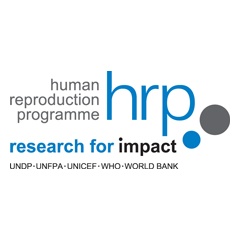Promoting contraception choice for every individual
New research from the World Health Organization (WHO) sheds light on what people want in family planning
Contraception lives in a space where decisions about two socially-sensitive topics – fertility and reproduction – take place. A new special issue from WHO on Contraceptive Values and Preferences, published in the July issue of Contraception, examines individuals’ values and preferences across several demographics, including: sexually active women, women with specific medical conditions, men, young people and adolescents, women living with HIV, health care providers and people living in humanitarian contexts or special social conditions.
While the six systematic reviews capture a great variety of preferences depending on age, geography and other factors, several universal themes emerged including the desire to have options that are safe and affordable, have few side effects, and are accessible within a supportive environment.
“Contraception is all about choice. As practitioners and advocates we must ask, ‘How do you make that choice come alive?’” said Dr James Kiarie, unit head for Contraception and Fertility Care in the WHO Department of Sexual and Reproductive Health and Research, including the UN Special Programme of Research in Human Reproduction (HRP), and co-author of the editorial, Setting global standards: The paramount importance of considering contraceptive values and preferences of clients and providers, which opens the supplement.
Choice is at the heart of fertility decisionsWith this growing body of evidence, there is the understanding that while health care providers are positioned to offer information on the safety and efficacy of each method, the deeply personal decision of what method to use is best left up to the patient. This approach is in alignment with WHO contraceptive guidance, which does not recommend specific methods for different types of individuals.
Instead, WHO recommendations respond to whether certain methods are deemed safe and effective according to an individual’s characteristics. WHO acknowledges that fertility preferences are complex, typically influenced by a wide variety of factors including social pressures, approval from family and the availability of different methods.
The variety in preferences in family planning vary across cultures. Furthermore, contraceptive preferences and the approach to family planning is likely to change throughout a person’s life, especially throughout the several decades of fertility. Pregnancy preventions is influenced by life circumstances as well. An adolescent will have different needs than an adult, or a woman at high risk of contracting HIV will prefer contraception methods known to not put them at an even higher risk.
Research to expand contraception offering and accessThe systematic reviews included in the July issue present a qualitative analysis of evidence and answers the call of the WHO Guideline Development Group for research that clearly brings to light the preferences and values people have in contraceptive decisions. The research will be used to inform and guide updates to contraception recommendations by the WHO, and partners.
“This research is a long time coming and will help to inform and set the standard for updates and guidelines to come,” said Dr Mary Lyn Gaffield, scientist with WHO, and co-author of the issue’s editorial. “This is just the beginning; several reviews are not enough. We believe this work will have direct implications for individuals as well as public health policies.”
The July issue’s editorial cites a landmark analysis showing that family planning will have a direct impact on achieving the Sustainable Development Goal (SDG) themes of people, planet, prosperity, peace, and partnership.
Universal access to sexual and reproductive health services and information, including access to the full range of safe and effective contraceptive methods, is fundamental to the rights and well-being of adolescents and adults of all genders.
Said Dr Kiarie, “Ultimately, we can’t make progress on the SDGs unless we really understand the values and preferences of people.”
( Press Release Image: https://photos.webwire.com/prmedia/7/290828/290828-1.jpg )
WebWireID290828
This news content was configured by WebWire editorial staff. Linking is permitted.
News Release Distribution and Press Release Distribution Services Provided by WebWire.
